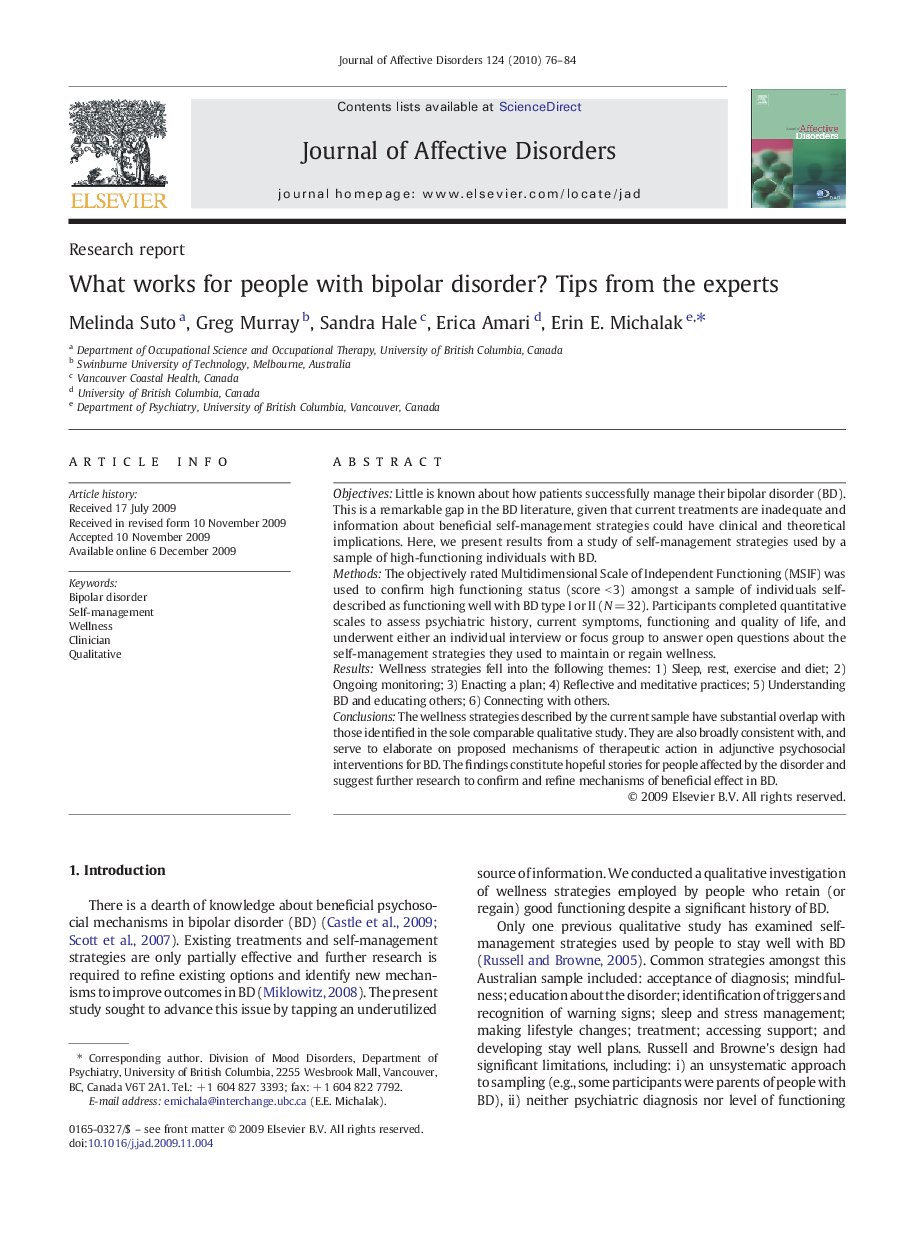| Article ID | Journal | Published Year | Pages | File Type |
|---|---|---|---|---|
| 4186817 | Journal of Affective Disorders | 2010 | 9 Pages |
ObjectivesLittle is known about how patients successfully manage their bipolar disorder (BD). This is a remarkable gap in the BD literature, given that current treatments are inadequate and information about beneficial self-management strategies could have clinical and theoretical implications. Here, we present results from a study of self-management strategies used by a sample of high-functioning individuals with BD.MethodsThe objectively rated Multidimensional Scale of Independent Functioning (MSIF) was used to confirm high functioning status (score < 3) amongst a sample of individuals self-described as functioning well with BD type I or II (N = 32). Participants completed quantitative scales to assess psychiatric history, current symptoms, functioning and quality of life, and underwent either an individual interview or focus group to answer open questions about the self-management strategies they used to maintain or regain wellness.ResultsWellness strategies fell into the following themes: 1) Sleep, rest, exercise and diet; 2) Ongoing monitoring; 3) Enacting a plan; 4) Reflective and meditative practices; 5) Understanding BD and educating others; 6) Connecting with others.ConclusionsThe wellness strategies described by the current sample have substantial overlap with those identified in the sole comparable qualitative study. They are also broadly consistent with, and serve to elaborate on proposed mechanisms of therapeutic action in adjunctive psychosocial interventions for BD. The findings constitute hopeful stories for people affected by the disorder and suggest further research to confirm and refine mechanisms of beneficial effect in BD.
